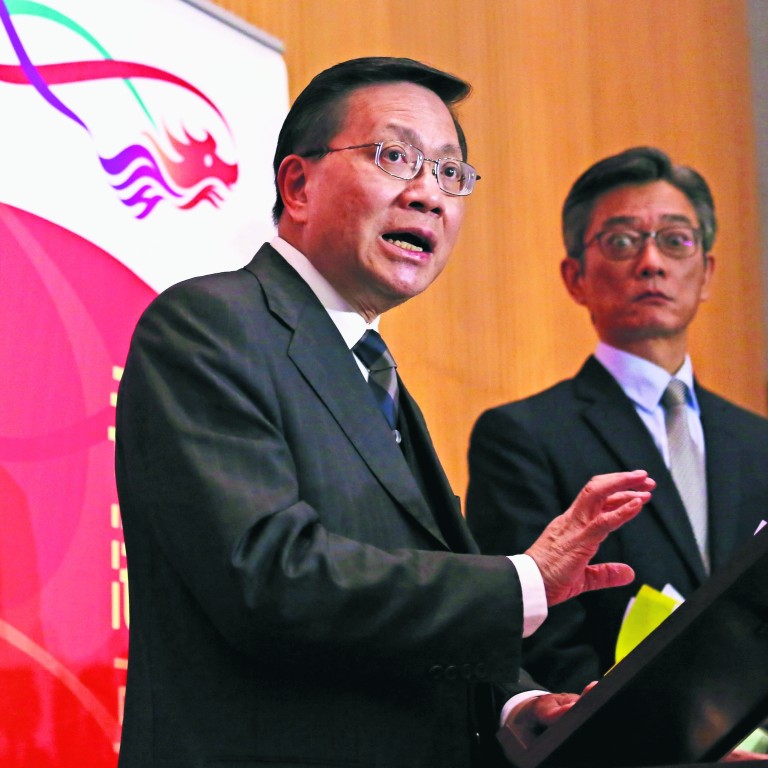
Hong Kong's public rent hopes slashed as 10-year housing target is lowered
As minister announces HK$45 billion top-up for reserve fund, he reveals that hoped-for supply of public rental flats has been cut by 20,000 units
A special reserve fund for housing will get a HK$45 billion top-up, but the government has lowered its flat supply target for the coming 10 years to 460,000 units from the 480,000 target set last year.
Unveiling the government’s latest Long Term Housing Strategy Report yesterday, Secretary for Transport and Housing Anthony Cheung Bing-leung said the target was revised because an updated projection by the Census and Statistics Department in September showed the net increase in the number of new households was less than the previous estimate.
Cheung said the city was still facing a housing shortage, and the demand for homes still far exceeded supply, particularly for public housing flats.
“In view of this, the government cannot afford to wind down the large-scale programme for identifying land for housing production,” he said.
Of the targeted 460,000 flats between 2016 and 2025, 60 per cent, or 280,000 units, will be built by the government, and 40 per cent, or 180,000, by the private sector. Of the units to be supplied by the government, 200,000 will be public rental housing while 80,000 will be subsidised flats.
Cheung cited the supply of land sites and availability of funding as major factors in determining how many new flats the government could provide.
“One of the key challenges faced by the Housing Authority in terms of public housing construction is that over 80 per cent of the land sites are not spade-ready,” he explained. A shortage of construction workers was also a problem.
But Federation of Trade Unions lawmaker Alice Mak Mei-kuen was disappointed by the lower target and urged the administration to provide more information to prove it was necessary.
“An increasing number of people are waiting for public rental housing. They can’t afford to buy flats in the private sector as prices remain high,” she said.
But she rejected concerns that the government might be trying to support property prices in a sluggish market. “There’s still no need for doing it,” she said.
A leading real estate consultancy played down the effect of the revised supply target on the city’s property market. Thomas Lam, head of valuation and consultancy at Knight Frank, said: “It should not have any immediate impact on home prices.”
He said the new target indicated the government was facing immense difficulty in finding land and it had become “more realistic” about future flat supply.
He expected the annual housing supply target to be met between now and 2020, and existing land supply to be sufficient to build 110,000 new flats in the private sector for the next five years. “But the lower supply target will add more uncertainties to housing supply after 2020,” he added.
The Housing Reserve, established last year to support the government’s home supply targets, currently holds HK$29 billion, up from the initial injection of HK$27.5 billion due to interest earned.


